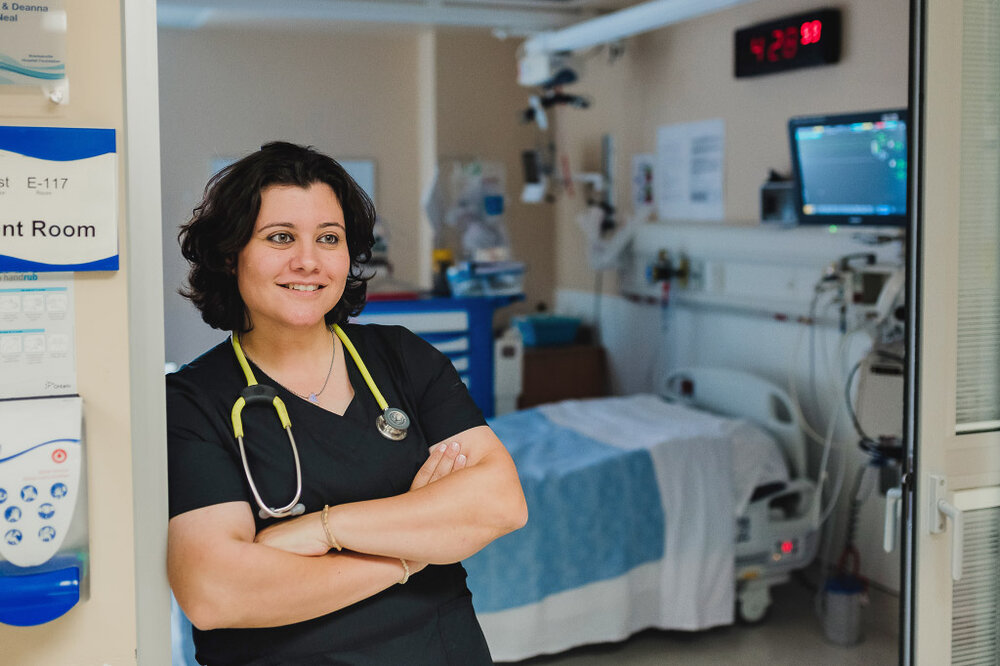Is it hard to find a job as a doctor? In a word, yes.
With the world expanding ten folds with access to the Internet, the competition is tough (but manageable). Doctors are now offering virtual care and top hospitals and organizations are looking for doctors that can show more than just a medical degree.
If you’re wondering how do doctors get jobs, the answer to that is, they bring more to the table than just academic excellence. To be a good doctor and excel in your career, you need to have a strong understanding of what your personality is like, especially what your strengths and weaknesses are. Having good self-awareness makes it easier for you to identify the areas where you can improve and the qualities that you’re good at to be able to bring your best to the table.
For example, you may need help with communication skills or assistance with being detail-oriented which is a crucial quality when it comes to patient care. Knowing this about yourself can allow you to seek help and be a better physician.
Strengths are your innate potentials that impact our thoughts, actions, and emotions. They help us form our personalities and highlight your uniqueness. This could be something that comes naturally to you, something you’re good at, or something that you enjoy doing.
Weaknesses are qualities or skills that do not come to you naturally. You may even struggle to adapt to them and they demand extra attention and hard work. However, no weakness is permanent. If you’re thinking is it hard to find a job as a doctor because I’m not very detail-oriented, then that’s not true. With a clear plan and enough zeal you can not only identify but overcome your weaknesses to become a better doctor.
3 Principal Qualities That Define Humans
The process of how to find out what your dream job is, begins with understanding yourself. When it comes to human qualities, they can be grouped into three categories.
1. Knowledge-based skills
These are skills that you acquire from learning and education. For example, a better grip on language (foreign languages), IT expertise, any specialized training and technical abilities.
2. Transferable skills
These are qualities that come naturally to you. They are strengths that define who you are and help you excel at your job. For example, problem-solving, good decision making, punctuality, sincerity, etc.
3. Personal skills
Personal skills are qualities that make you unique from others. Dependability, trustworthiness, flexibility, honesty, etc are traits that make you stand out. More often than now, these skills are inborn, genetically acquired, or learned during the initial social development. These skills will also help you answer the question – how to find out what your dream job is.
4 Ways To Identify Your Strengths And Weaknesses as Doctors
To make the most of your potential, it’s crucial to identify them first. Knowing where you stand firm and where you fall weak can determine how well you do as a doctor and the kind of patient care you offer.
Here are four simple ways that you can use to identify your strengths and weaknesses.
1. Start by creating two lists
Before you reach out to your friends and network to help you identify your strengths and weaknesses, spend some time self-reflecting by creating two lists. One can be titled ‘strengths’, the other ‘weaknesses’ and then be as honest as you can filling these out.
Depending on your personality, you’ll find one of these columns will be much easier to fill. However, try to be as objective as you can during the process. Don’t worry too much about your weaknesses and don’t ponder too much on your strengths. Just jot them down.
You also don’t have to be extremely comprehensive about this list. Aim for listing down not more than 10-15 qualities in each section. For example, under strengths, you could add traits such as punctuality, highly motivated, detail-oriented, and more.
The objective of this activity is to give you a headstart to better understand yourself before seeking external input to polish the list.
2. Reach out to people you trust
The first list that you have is entirely based on your own opinion. Often people give themselves either too much credit or too little. Therefore, to refine this list, reach out to three to five people who know you well, have probably worked with you, and whose opinions you value. These could be your significant other, your colleague/best friend at work, or a close friend.
When you’re reaching out, make sure you give them some context as to what this is about. For example, tell them you want to be a family physician and in order to be successful, you need to have a strong grip on your strengths and weaknesses. Let them tell you areas where you excel and qualities that need a bit of honing.
As you receive this feedback, keep adding it to your list. You’ll see that some of your strengths and weaknesses are validated while some will come as a surprise.
3. Take a personality test
In addition to self-reflection and insights from friends and family, personality tests can also give you valuable information about your strengths and weaknesses. Here are some tests you can try.
a. EQ-i 2.0 Emotional Intelligence Assessment
This tool helps measure the effectiveness of expression, interpersonal skills, self-awareness, stress management, and decision-making abilities–qualities that are crucial for becoming a good doctor.
b. Booth’s 360 Leadership Emotional Intelligence (LEQ)
Booth’s 360 LEQ offers both qualitative and quantitative insight on emotional intelligence and leadership competencies. It measures the personal and strategic skills that directly impact professional success.
c. Emergenetics
This tool gives you a simple yet thorough understanding of how you’re wired and how other people experience you. It gives you insights on what you bring to a team, and how you can enhance your ability to communicate. If you plan on leading a team or a department in the future, this tool can help you identify critical characteristics to be a more efficient leader.
d. TotalSDI
TotalSDI (Strengths Deployment Inventory) is a great test to not only identify your strengths but also see how you use those strengths to improve your performance, or better communicate with the people you’re working with, enhance the process, etc. It helps you identify how your strengths are deployed when you’re motivated to do something.
4. Experience new things
In the process of identifying your strengths and weaknesses, you’ll realize that you don’t know whether you’re good at something or not because you’ve never tried it. For example, how will you know that you have a creative edge to you if you never try anything creative? Every field can use the benefits of creativity, including medicine.
Evaluate Your Final List
Once you’ve created a list of all your strengths and weaknesses, spend some time evaluating the qualities that need that extra attention from you.
For example, you might realize that you’re not detail-oriented, a quality highly valued in the medical field. Or, you may realize that while you do possess a particular strength, it needs more polishing so that it can be developed to its full potential.
Cross-pollinate that list with your strengths and weaknesses list and develop a plan on how you’re going to address every quality.
If you’ve ever wondered how do doctors get jobs, they spend time understanding themselves and emphasize that along with their academic degrees and other qualities on their resumes. The steps to finding and landing your dream doctor job start from the day you decide to pursue medicine. The more you work on yourself, the better you’ll fare.
This article offers general information only and is not intended as legal, financial or other professional advice. A professional advisor should be consulted regarding your specific situation. While information presented is believed to be factual and current, its accuracy is not guaranteed and it should not be regarded as a complete analysis of the subjects discussed. All expressions of opinion reflect the judgment of the author(s) as of the date of publication and are subject to change. No endorsement of any third parties or their advice, opinions, information, products or services is expressly given or implied by RBC Ventures Inc. or its affiliates.

Additional Reading
Dr. Nour Khatib left medical school for a finance career, but a persistent calling encouraged her to return years later and become an emergency physician.






